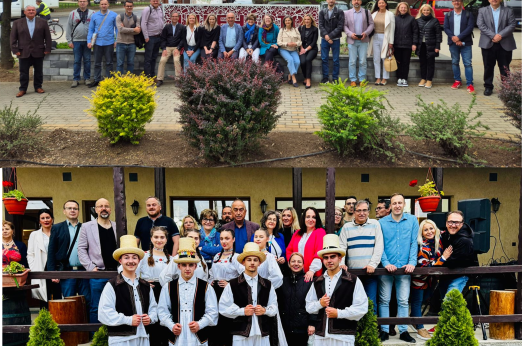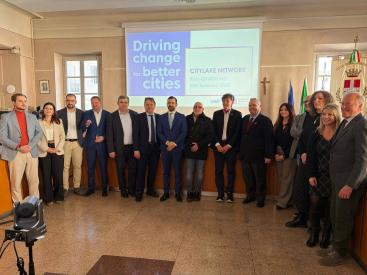01/06/2023 31/12/2025
GenProcure will address the gender equality in public procurement, many times referred to as Gender-Responsive Public Procurement. It consists of promoting gender equality through working purchases, supplies and services by the public sector, meaning that both suppliers and buyers include, in the agreed contracts, a part that concerns the interests both of men and women, paying particular attention to its development in a way that leads to a reduction of gender inequalities.

Summary
PARTNERS
Lead Partner : Vila Nova de Famalicão - Portugal- Zagreb - Croatia
- Koszalin - Poland
- Messina - Italy
- Satu Mare County Intercommunity Development Association - Romania
- Umea - Sweden
- Újfehértó - Hungary
- Department for Development and International Projects of Government of Zenica-Doboj Canton - Bosnia-Herzegovina
- Alcoy - Spain
Timeline
Final Partner Meeting and GenProcure Final Conference on 28-29 October 2025 in Zagreb, Croatia
Subject: Placing GenProcure in the context of wider Policy-Making; 9 IAP's presentations; reflections on GenProcure journey
Bespoke ULG Workshop on 9 September 2025 in Umeå, Sweden
Subject: Embedding Social, Environmental and Gender Considerations into Procurement
Bespoke ULG Workshop on 2 June 2025 in Vila Nova de Famalicão, Portugal
Subject: Embedding Social, Environmental and Gender Considerations into Procurement
Transnational Meeting on 27-29 May 2025 in Újfehértó, Hungary and Satu Mare, Romania
Subject: Peer Review of IAPs
Online Meeting: 15 May 2025
Subject: Contract Monitoring
Transnational Meeting on 11-12 March 2025 in Alcoi, Spain
Subject: Gender Budgeting and developing the GenProcure Gender Clause Catalogue.
Bespoke ULG Workshop on 4-5 February 2025 in Satu Mare, Romania
Subject: Embedding Social, Environmental and Gender Considerations into a specific Procurement + Findings from Spend Analysis and further developing of Satu Mare IAP
Transnational Meeting on 19-20 November 2024 in Koszalin, Poland
Subject: A Focus on SME Engagement in Public Procurement
Online Meeting: 14 November 2024
Subject: Gender Responsive Procurement masterclass + panel with city of Vienna
Transnational Meeting on 17-18 September 2024 in Vila Nova de Famalicão, Portugal
Subject: Gender Equality Plans, Gender Mainstreaming, Gender Budgeting, and Gender Criteria in Public Procurement
Transnational Meeting on 4-5 June 2024 in Messina, Italy
Subject: Social, Environmental and Gender Considerations in Procurement
Online Meeting: 7 May 2024
Subject: Influencing other Anchor Institutions
Transnational Meeting on 19-20 March 2024 in Umeå, Sweden
Subject: Gender Equality, Gender Equality Strategies, and Gender Equality Activities’ and ‘Public Procurement Strategy’
Online Meeting: 7 February 2024
Subject: Spend Analysis
Transnational Meeting on 21-22 November 2023 in Vila Nova de Famalicão, Portugal
Kick-off Meeting
Network outputs
-
Baseline Study_fv.pdf(PDF, 2Mo)











